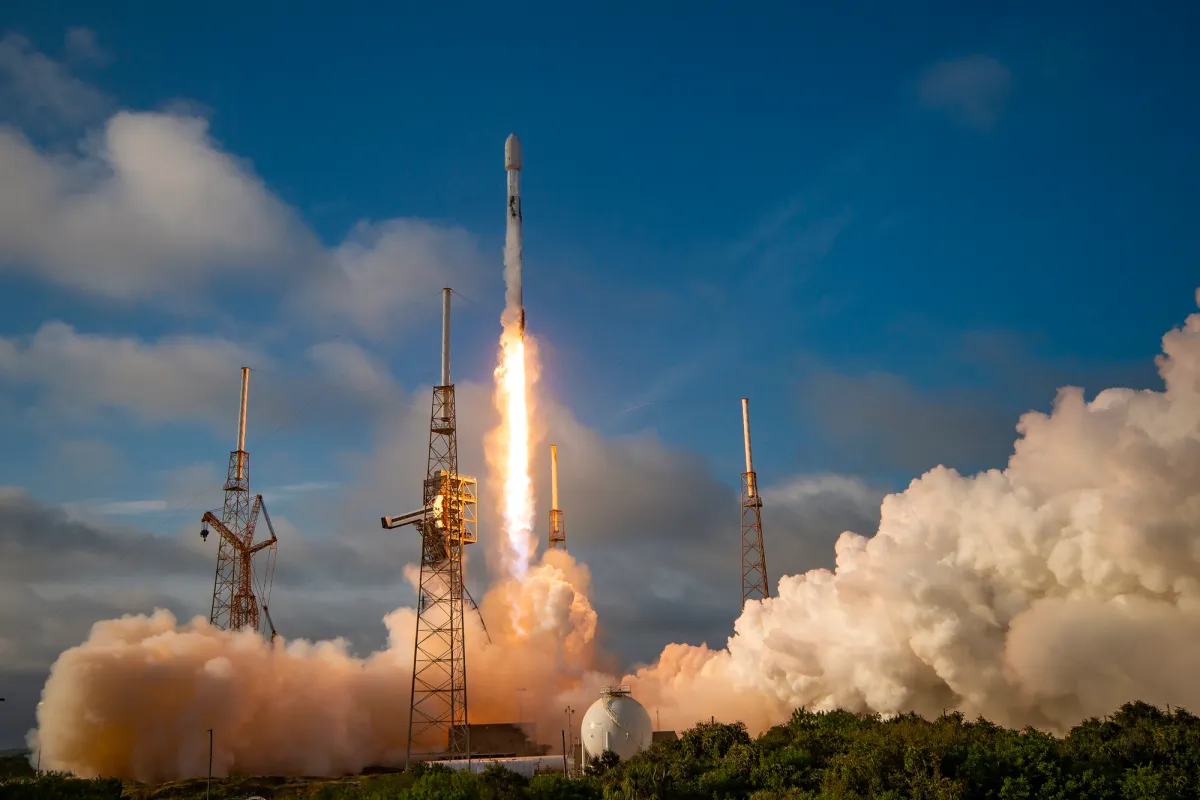India is set to script a new chapter in its space history as Wing Commander Shubhanshu Shukla, an Indian Air Force pilot and ISRO-trained astronaut, prepares for launch aboard the Axiom-4 mission to the International Space Station (ISS). The launch, scheduled for 12:01 PM IST on Wednesday, June 25, will make Shukla only the second Indian to travel to space after Rakesh Sharma’s mission in 1984.
The Axiom-4 mission, a collaborative effort by NASA, Axiom Space, and SpaceX, will lift off from Launch Complex 39A at NASA’s Kennedy Space Center in Florida. The crew will journey to the ISS aboard SpaceX’s Crew Dragon spacecraft, launched on a Falcon 9 rocket.
The Crew and Timeline
Shubhanshu Shukla is part of a four-member international crew that includes:
- Peggy Whitson (USA) – Former NASA astronaut and current Director of Human Spaceflight at Axiom Space, who will command the mission.
- Sławosz Uznanski-Wisniewski (Poland) – ESA project astronaut.
- Tibor Kapu (Hungary) – Representing Hungary’s HUNOR program.
Shukla will serve as the pilot of the mission, showcasing India’s growing space capabilities on the global stage.
Following launch, the Dragon spacecraft is expected to dock with the ISS at approximately 4:30 PM IST on Thursday, June 26. The crew will spend around 14 days aboard the space station, conducting over 60 scientific experiments contributed by researchers from 31 countries, including several from India.
India’s Return to Space
This launch marks a symbolic return for India to human space exploration after more than four decades. Rakesh Sharma, the first Indian in space, flew aboard a Soviet Soyuz mission in 1984. Since then, no Indian national has flown to space—until now. Shukla’s selection and training through ISRO and international partners represent a major milestone in India’s space ambitions, especially ahead of the country’s upcoming Gaganyaan crewed mission.
Shukla, an accomplished test pilot in the Indian Air Force with over 2,000 flying hours, was selected in 2019 as part of ISRO’s first group of vyomanauts (astronauts). He has since trained extensively at NASA’s Johnson Space Center and Russia’s Gagarin Cosmonaut Training Center.
Experiments Led by India
A key highlight of the mission is India’s contribution to onboard scientific research. Shukla will lead several Indian experiments, including:
- Cultivating traditional Indian crops like methi (fenugreek) and moong dal in microgravity conditions to study space farming possibilities.
- Muscle biology research, observing the effects of microgravity on myogenesis (muscle cell formation).
- Studying the survival of tardigrades, known for enduring extreme environments, to evaluate long-term space life sustainability.
- Evaluating the growth of cyanobacteria and microalgae, which could play a vital role in oxygen generation and food production in space.
These experiments aim to enhance India’s capabilities in life sciences, space agriculture, and astrobiology, and are expected to inform future long-duration space missions, including planetary exploration and lunar habitations.
A Mission Long in the Making
The Axiom-4 mission faced multiple delays before reaching today’s launch window. The original schedule was May 29, but bad weather, a technical glitch on the Falcon 9 rocket, and a leak detected on the Russian module of the ISS caused a series of postponements. However, all issues have now been resolved, and the mission is set to proceed with 90% favorable weather conditions, according to SpaceX.
This mission also marks a turning point in private spaceflight. As a commercial astronaut mission, it represents the growing role of private space firms like Axiom Space and SpaceX, working in tandem with public agencies like NASA and ISRO. The goal is to eventually transition from the current ISS to a commercial space station, with Axiom planning its own modular outpost in orbit.
Global Collaboration and Future Aspirations
Shubhanshu Shukla’s participation in Axiom-4 highlights India’s increasing integration into the global space ecosystem. It reflects ISRO’s vision of collaboration, not just on satellite launches and space missions, but also in deep space research and human spaceflight.
The mission also adds strategic value to India’s Gaganyaan programme, currently targeting its first crewed launch by 2026. Shukla’s experience on the ISS will directly feed into ISRO’s human spaceflight preparation and operational knowledge.
As the countdown begins, millions of Indians will be watching with pride. For India, this mission is not just about sending an astronaut to space; it is about symbolizing a nation’s technological maturity, its global partnerships, and its future in deep space exploration.







